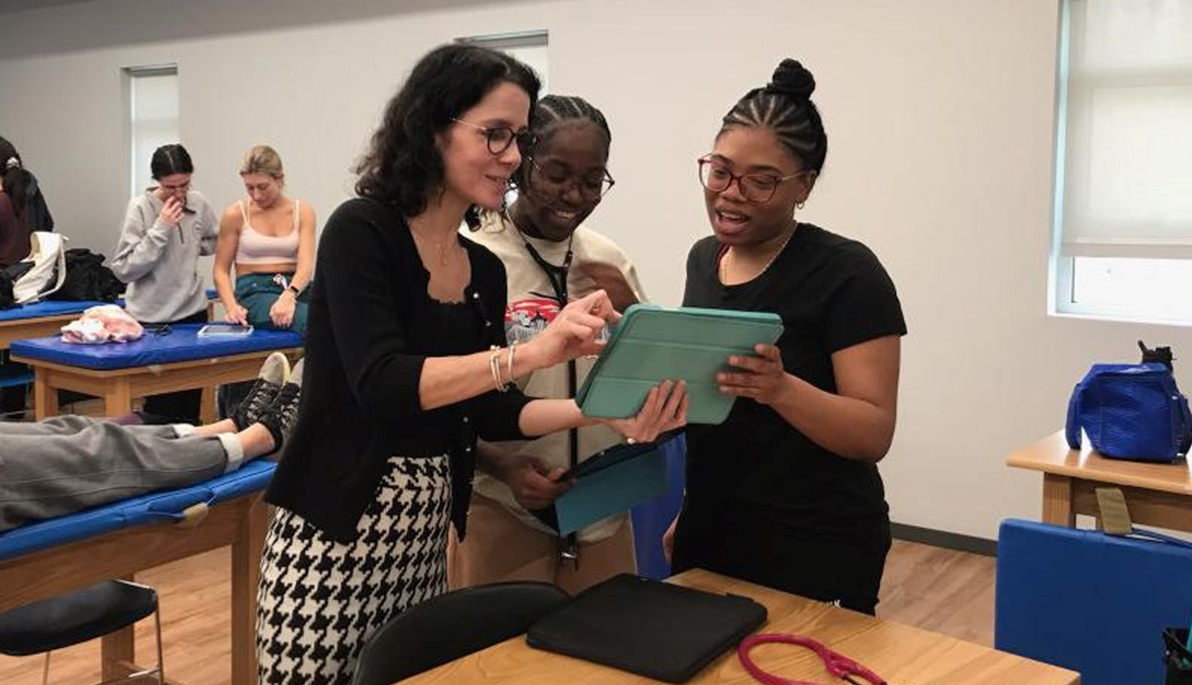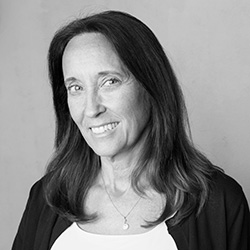PA Envy
Healthcare in the United States is changing, and the role of physician assistants (PAs) as primary healthcare providers is an important part of those changes. Associate Professor of Physician Assistant Studies Corri Wolf, Ph.D., didn’t start her career as a PA, but as she became acquainted with their work, she knew it was the job for her.
A member of the School of Health Professions faculty since 2008, Wolf talked with The Box about her work as both a healthcare provider and educator.
What do physician assistants do?
PAs diagnose illness, develop and manage treatment plans, prescribe medications, and often serve as a patient’s principal healthcare provider. PAs practice in every state and in every medical setting and specialty.
The Bureau of Labor Statistics projects that the demand for physician assistants will grow 31 percent from 2020 to 2030, much faster than the average. What do you think is driving this demand?
Several factors are driving the demand. For one thing, there is a shortage of physicians. Also, PAs are a relatively cost-effective way to deliver healthcare. In general, though, people will continue to want PAs because (as numerous studies have demonstrated) PAs provide high-quality patient care.
What drew you to Physician Assistant Studies?
I was working as a registered dietitian and was unsatisfied with my role in patient care. I observed PAs on my healthcare team and envied their day-to-day job. I thought, “I want to do that!”
I am not a big risk-taker, so quitting my job and taking out loans was a big leap for me. But I completed the prerequisites, applied to PA school, and the rest is history. I am so pleased with my choice.
Have you had any funny or unusual experiencees in the classroom or at a clinical site?
When I was a PA student, I loved medicine and the science behind it but was not as comfortable with needles and blood per se. My first rotation was OB/GYN, and I had never seen a birth before. (This was before YouTube and explicit cable tv shows.) I arrived at my rotation and was immediately pushed into a room where a woman was delivering. It was very warm, and there was screaming and what seemed like a lot of blood. The next thing I knew, I was being lifted off the floor and wheeled out in a wheelchair. Apparently, I fainted! I was mortified. For the rest of that rotation, nobody referred to me by my name; they called me “the fainter.”
Even though I had the worst first day ever, by the end of that rotation, I came full circle and delivered babies. The whole thing was an incredible experience.
How would you advise students who are considering pursuing PA Studies?
Shadow as many PAs as you can in as many areas as you can. Make sure you understand the day-to-day job. And shadow other healthcare workers as well, to be sure PA is what appeals to you the most. There are many rewarding careers in the medical field.
This interview has been edited and condensed.











